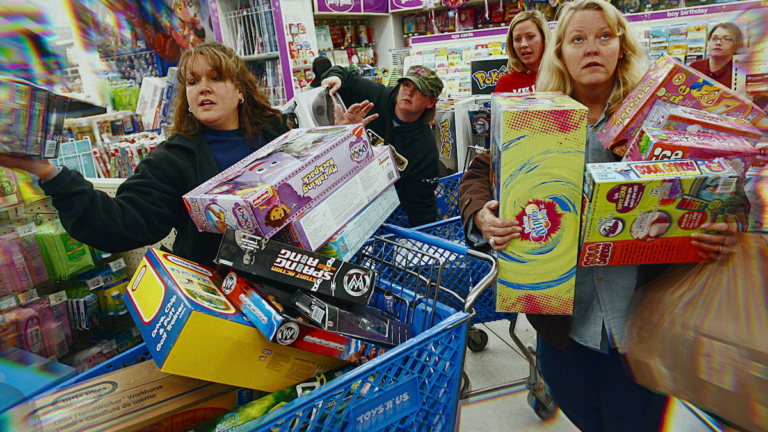
On the eve of next Black Friday, and less than a month before Christmas, who dares to stay at home when everything is half price? Why miss a unique opportunity to buy something new? This Friday the lines, the crowded stores, the downpours, or the cold fronts will not matter. The ritual described by Zigmunt Bauman in his book Consumer Life (2007), in which he warned that consumption, which occurs as a real need, is not the same as consumerism, which is a fictitious need, created by the market.
By offering products at very low prices, Black Friday generates a supposedly unrepeatable opportunity, which in turn produces a fictitious need. Under the justification of consumerism by the sense of opportunity, thousands of people go to stores to buy a new flat screen, almost always getting into debt, despite the fact that they have one or more that work perfectly at home.
A year ago, according to the newspaper La República, between Black Friday and the 2023 New Year’s Eve holidays, commercial sales were expected to soar by up to 20%. The news is accompanied by positive comments: this increase would boost the economy, increase temporary work and increase purchasing power to continue buying more things. Unfortunately, this type of publication completely ignores the negative consequences for people and the planet of consuming more and more products.
In her book For an Ethics of Consumption (2002), the philosopher Adela Cortina discusses with her friend Marta the typical argument that consumption generates well-being, both for the consumer and for the producers. Cortina’s text puts an end to the fantasy that this extra work, which has been required to make the product I will buy on Black Friday or Christmas, should make us feel good.
Much has been written and commented on the ethical challenges of consumption. However, we continue to buy and buy. Would this change if we were able to see the impact that the voracious consumerism of our days really generates? Maybe.
Eyes that see, heart that feels
The film entitled Buy Now!, the consumerist conspiracy (2024), available on Netflix, shows the impacts of consumerism that we do not see or do not want to see, or that no one has wanted to show us. It uses images of cities flooded in their own waste, generated with artificial intelligence, to measure the magnitude of the damage. It also takes us to sites in the Dominican Republic, Ghana and India where waste floats in rivers and seas, and to a place in the Philippines where people disassemble phones and appliances discarded in Europe, exposing themselves to chromium, mercury, lead and other toxic substances.
The film exposes the covert strategies used by corporations like Adidas, Zara, Apple, and Amazon to keep us all stuck in a never-ending cycle of shopping. Although the environmental and social impact of the fast fashion industry, cell phones and computers has been widely studied, the film manages, through its 84 minutes of duration, to lead us down paths that for many will be new, revealing and even terrifying.
Says a former Adidas director who is interviewed in the film, with a deeply embarrassed expression: “Every industry must take responsibility for the end of life of the products it manufactures.” The documentary is so frontal in relation to the damage we have caused, that it could leave us in a depressive state. Fortunately, towards the end he offers us some hopeful recommendations.
What to do?
First, avoid buying. Second, buy less. Third, before you buy, ask yourself if you really need this item. If you are buying that dress because you don’t have another suitable one for the occasion or if you can reuse one. Maybe you can borrow one from a friend. For Christmas gifts, think about giving those books you’ve already read, those glasses you hardly use, or those practically new clothes you have lying around.
If you really have to buy, prefer products that have been used by someone. “American” storesare, in this sense, a good option. Look for nationally manufactured products, take advantage of the Christmas fairs such as the Bandida Fair, the Mercadito de ilusiones or the Rural Pride Fair. Always buy good quality products: planned obsolescence is more accentuated in cheap products so you will soon end up buying another one. And not to mention the clothes in fast fashion stores, which are practically damaged the next day. Before shopping online, wait some time to determine if you really need that item you wanted to buy.
The book written more than two decades ago by Adela Cortina tried to ethically guide our excessive consumerism, proposing instead a fair, free, supportive and measured consumption. She proposed that we rethink the formula of “I consume, therefore I am” that our daily lives have become. Today, the need to think about different ways of life, just to the environment and to life, continues to be one of our great pending issues. A recent documentary entitled, with obvious irony, Buy Now!, tells us that we still have time.
